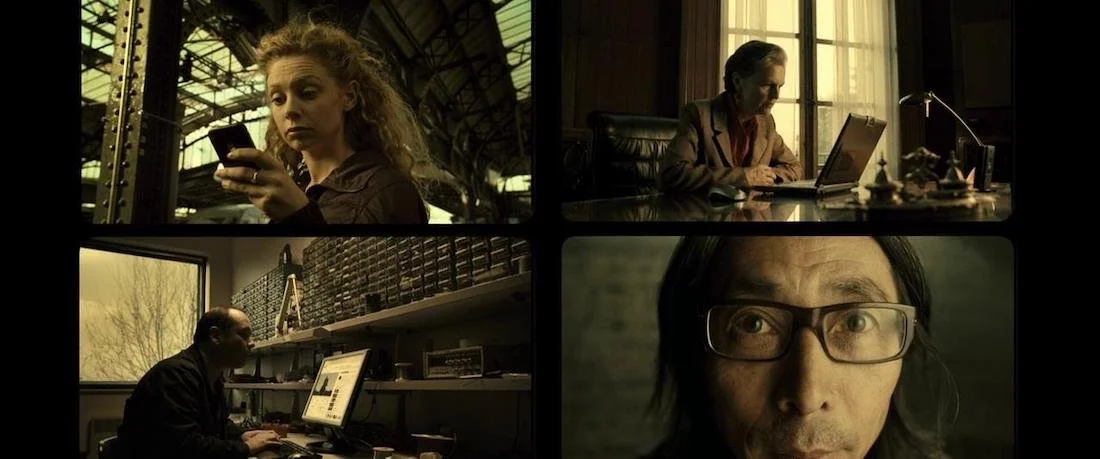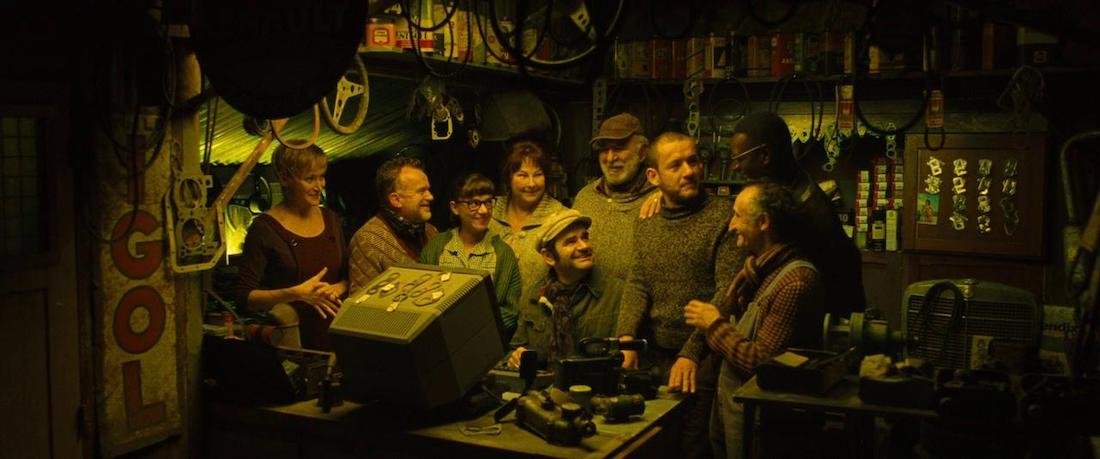MICMACS (2009)
A Perfect Example Of Maximalism
A few months ago, Daniel Kwan, one half of the Daniels (directors of EVERYTHING EVERYWHERE ALL AT ONCE) wrote about maximalism in filmmaking, in response to his film being described as “a triumph of the more.”
“So much discussion around ‘important’ art is usually focused on minimalism/restraint, subtlety/nuance. But I'm now realizing there is a place for work like ours, especially in a world where there is too much to process, maybe maximalist art is essential to meeting this moment.”
This got me thinking of one of my favourite filmmakers, Jean-Pierre Jeunet. All of his films use this “organized chaos”, from the sets to the music—to form this very comforting atmosphere, like visiting your grandmother’s house, complete with knickknacks covering every free surface and old-timey music on the radio. Jeunet’s films rarely stick to one genre, instead mixing comedy, drama and magic realism. This isn’t to say that movies can’t use more than one genre, they just often stick to one or two rather than half a dozen. Three other Jeunet-isms are casting the same actors in multiple films, fantastical elements (that rarely call attention to themselves) and very specific colour schemes: greens, reds, and yellows. Even ALIEN: RESURRECTION, the awkward cousin of the ALIEN franchise, uses these colours to give the sci-fi setting an extra "lived-in" and grimy vibe. (I would also argue, that while not a good ALIENS film, it still features some fun performances and effects.)
This is all to introduce why I love the wacky and weird world of MICMACS. The original French title is MicMacs à tire-larigot, loosely translated to "Non-stop shenanigans", which really sets you up with the tone of the film.
The events that lead our protagonist to his current predicament are almost like a Rube-Goldberg Machine of unfortunate incidents. Bazil (Dany Boon) has a rough go in life. After his military father is killed while disarming a landmine (this is literally how the film opens), his mother, clearly traumatized, is sent to a psychiatric hospital while Bazil is shuffled off to a strict boarding school. After he runs away, we cut to thirty years later and he's now working at a video rental store. A motorcyclist whizzes past, shooting at a nearby car. The gun misfires, with the bullet striking Bazil smack in the head. Talk about being in the wrong place at the wrong time!
His surgeons flip a coin to see if they should remove the bullet, as either way it could kill him. The bullet stays and they call it a ticking time bomb—telling him not to get too excited as that could aggravate it. Poor Bazil then wakes to find his job has replaced him, his neighbours (assuming he was dead) took all his belongings, leaving him with a hat and not much else. One day while busking, Bazil is taken in by a group of eccentrics who live in a commune made of trash. They’re circus performers, convicts, and weirdos who have become family, making money by fixing things and selling their inventions.
After discovering the arms dealers who manufactured the bullet in his brain and the company that made the landmine that killed his father are literally across the street from each other, Bazil sets up an elaborate plan to mess with both CEOs and bring their companies down. I don’t want to entirely spoil their hijinks but it’s really fun that every member of the group gets to use their skills to pitch in, making it a collective team effort instead of just Bazil leading the charge.
So yes, it is a satire on the industrial-war complex, but it's about found family and the desire to help each other. For scummy businessmen to get what they deserve. That our differences are a part of us, and we all deserve love. It’s a fairy tale set in the modern world.
Jeunet’s films also appeal to me as an autistic individual. Many of the characters are awkward and have difficulty with social situations. AMÉLIE does this as well and was one of the first films I watched that made me notice the art of filmmaking, instead of the kind of surface-level media consumption you do as a child. Bazil is literally a mime and uses exaggerated facial expressions, signs, and body language to get his point across. You know exactly what the characters are feeling without having to explain things, letting the film focus on the shenanigans instead.





